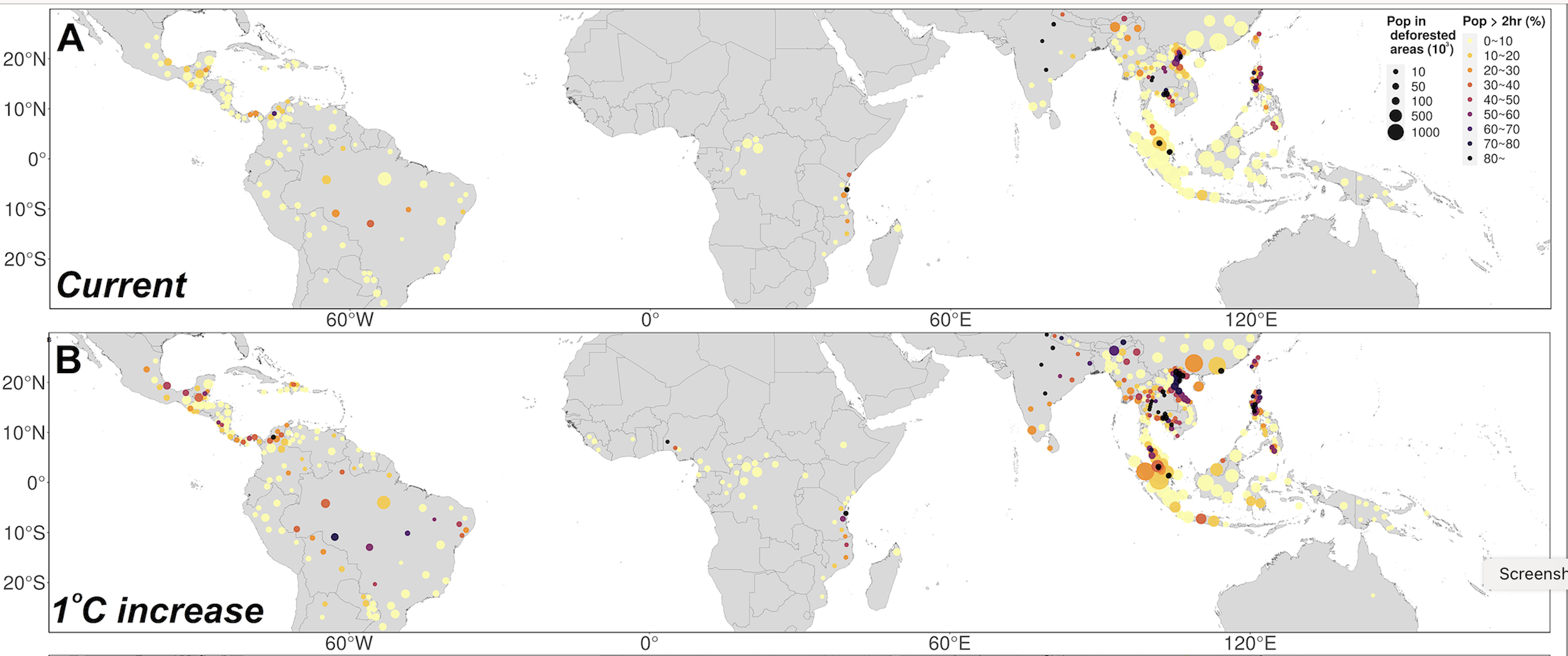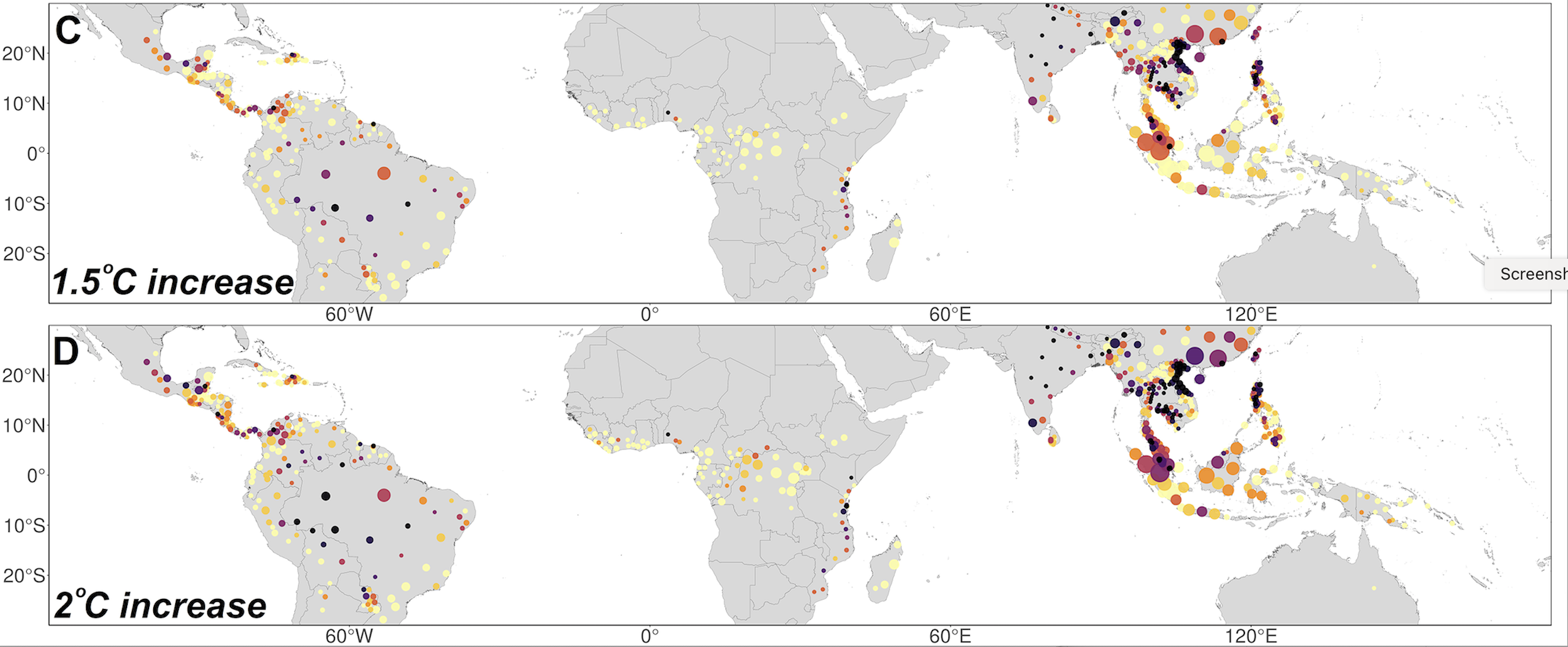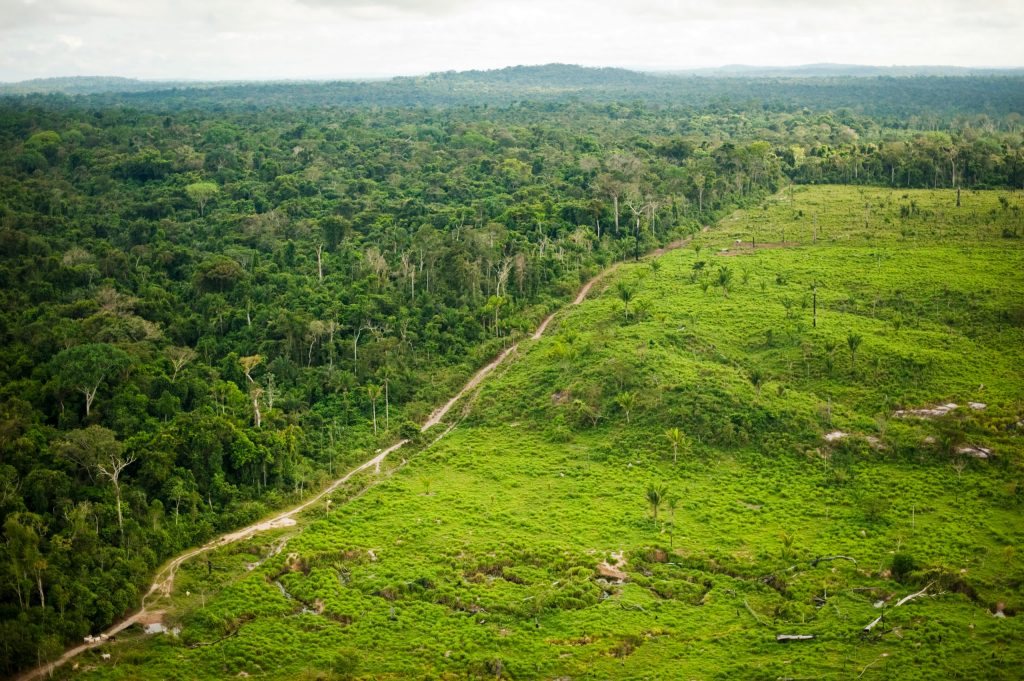New research finds that local temperature increases associated with just 15 years of deforestation reduced safe work hours for more than 4.9 million people across the tropics. Exposing outdoor workers to unsafe conditions will have significant impacts on human well-being and industry.
The Gist
Researchers examined satellite data on temperature and deforestation between 2003 and 2018 in 94 low-latitude countries with tropical forest. “We looked at the heat index in forested locations versus deforested locations, but more specifically how the heat index changed between those locations that maintained forest cover versus those that lost it,” explains Luke Parsons, a climate scientist at Duke University and lead author on the paper. “Then we used worker health guidelines to estimate how many hours of safe work people lost.”
Their results, published in the journal One Earth, show that local warming associated with just 15 years of deforestation reduced safe work hours by 30 minutes per day for more than 4.9 million people. People living in places with rapid forest loss, like the Brazilian states of Mato Grosso and Pará, are experiencing the largest losses of safe work time. Other locations of note include Belize, Cambodia, Vietnam, Malaysia, Myanmar, Nigeria, and Cameroon.
The researchers then incorporated different climate change projections, adding additional degrees of global warming on top of local, deforestation-driven temperature increases. They found that an additional 9.6 million people will experience a loss of more than 2 safe work hours per day if global temperatures warm an additional 2°C from the present. Those results are considered conservative, as they assume no additional deforestation or population growth.

The Big Picture
Between 2003 and 2018, an estimated 8.7% of tropical forest cover (1.22 million square kilometers) was lost or degraded. When forests are lost, so too are their cooling services, resulting in a significant increase in local temperatures.
Previous research from Nature Conservancy scientists and their collaborators found that deforestation in low-latitude tropical countries can lead to an immediate increase of up to 10°C in local afternoon temperatures. Nicholas Wolff, a climate scientist at The Nature Conservancy and author on the research, likens it to 100 years of global climate change happening in a single season.
Other studies from the team have found that deforestation-driven heat is already reducing worker productivity in Indonesia, forcing people to change their behavior to compensate for hotter conditions and impacting the cognitive performance of rural workers.

The Takeaway
While losing 30 minutes of safe work conditions per day might not seem significant, Wolff notes that the number is an average, and some locations are experiencing significantly larger amounts of lost safe work hours. For example, he says that it’s up to 2.5 hours per day in some parts of the Americas.
“Imagine telling a huge industry, like a car manufacturer or an Amazon distribution center, that they have to cut back on work by 30 minutes each day. Imagine how they would react,” says Wolff. “That time adds up. It’s critical for industry and it’s critical for individuals at the poverty line trying to feed their families. They can’t just make up those hours or income.”
This research highlights how critical remaining forests are to human health and climate resilience. “We also found that places that have maintained forests have such minimal temperature increases,” says Parsons. “Tropical rainforests are astonishingly good at moderating background climate with their cooling services. Even as a climate scientist that studies this, I’m still surprised.”
Their results point to the value of avoided deforestation, as well as reforestation, as a way for tropical nations to protect the health of their residents and build community resilience in the face of climate change.



